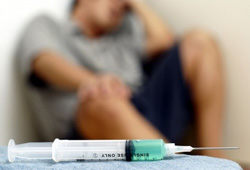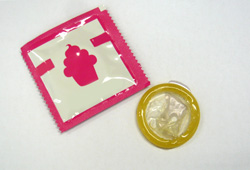Prevention

The major routes of HIV transmission are sexual intercourse, sharing needles, syringes and other injection equipment and mother-child transmission. Precautions shall be taken to prevent HIV infection through these measures:
Prevent HIV from sexual intercourse:
- Use condoms correctly and consistently every time when you have sex of any kind. The use of water-based lubricants reduces the risk of condom tears.
- Do not have sex of any kind if condoms are not available.
- Know your HIV status and ask your partner to get tested before you have sex.
- Avoid direct contact with vaginal fluid, semen, and blood during sexual intercourse
- Unprotected sex is safe only if both partners are HIV negative and monogamous (sexually active only with each other). Proper and consistent use of condoms is useful to prevent sexually-transmitted diseases among monogamous partners.
- Get treated if you or your partner have sexually transmitted disease.
Prevent HIV from needle sharing and needle injury:

- Do not use drugs. If you do, do not inject.
- If you are injected drug user, always use clean needles and injection equipment. Do not share your used needles to others.
- Do not share tattoo and acupuncture needles.
- HIV test is available in methadone treatment centres in Hong Kong.
- Dispose used needles and syringes in a rigid, puncture-resistant container such as a biscuit can. When two-third of the container is filled with used sharps, close the lid tightly, seal it with tapes, and label the container as sharps before disposing them with other household waste.
- If you are accidentally struck by another person’s used needle or other sharp, wash the exposed area with soap or alcohol-based handrub, and then seek medical attention immediately.
Prevent HIV from contacting body fluids:
- Do not share toothbrush and razor blades.
- Do not expose injured skin. Apply dressing material on injured skin after proper cleansing.
- Wear appropriate personal protective equipment such as disposable gloves when in contact with body fluids. Perform hand hygiene properly afterwards.
- Wash hands immediately and thoroughly after contact with blood or body fluids.

Prevent passing HIV to baby:
- Test for HIV status when you plan for a pregnancy or as soon as you find out you are pregnant.
- Antiretroviral treatment during pregnancy, labor and delivery greatly reduces the risk of HIV transmission to infant.
- Breastfeeding is strongly discouraged to mothers who are HIV positive.
- Treatment is available to protect newborn babies from HIV infection.
